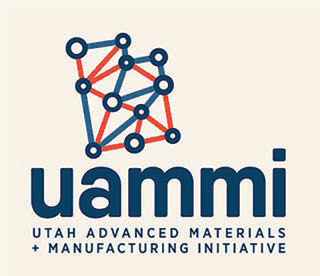The Utah Advanced Materials and Manufacturing Initiative (UAMMI) has been awarded nearly $1 million in federal funds to produce carbon composite additive manufactured parts for the U.S. Air Force. This technology will give UAMMI the ability to 3D-print carbon-based replacement parts for legacy aircraft on demand, something often prohibitively expensive and time-consuming using traditional technologies.
UAMMI’s award constitutes a two-year, $928,000 project and is set to begin in June. The grant will come from the Air Force-driven MAMLS program (Maturation of Advanced Manufacturing for Low-Cost Sustainment), which was created in partnership with the Air Force Research Lab (AFRL), National Center for Defense Manufacturing and Machining (NCDMM) and America Makes.
{mprestriction ids="1,3"}As a nonprofit initiative, UAMMI’s mission is to ensure that Utah is the global leader in value-added advanced materials, manufacturing, technology development and design. Being awarded this funding will allow UAMMI to bring additive manufacturing, or 3D printing of carbon materials, to the forefront in Utah, which is quickly becoming a major interest for many Utah advanced manufacturing companies.
“Additive manufacturing represents a huge opportunity for Utah’s advanced manufacturing industry,” said Jeff Edwards, UAMMI executive director. “The carbon-based components we will produce will be highly valuable to the Air Force as they will significantly reduce both the time and cost of aircraft repairs. This grant will help position Utah as the technology leader and innovator in this new field.”
As aircraft age, availability of parts for needed repairs gets more and more difficult, Edwards explained. Waiting on these parts to be replaced through traditional fabrication is a significant driver of maintenance downtime in legacy systems because of part obsolescence, diminishing man-ufacturing sources, material shortages and lack of technical data to fabricate the part. The Air Force Sustainment Center has worked many years to resolve the root causes of these problems with minimal success. Through MAMLS, the Air Force intends to demonstrate that with the advances in additive manufacturing, these parts can be manufactured on-demand.
During the project, the UAMMI additive manufacturing team will be housed at the Utah Science Technology and Research Initiative (USTAR) Innovation Center, which is located at the Falcon Hill Aerospace Research Park next to Hill Air Force Base.
“We are thrilled to be awarded the funding for this project and are excited to start working with our partners to implement it,” said Edwards. “Additive manufacturing represents a large opportunity for Utah’s advanced manufacturing industry and we are pleased to receive the funding and begin this one-of-a-kind project here in Utah.”
Founded in 2014, UAMMI brings together public, private, community, industry and education partners to assure the growth and sustainability of Utah’s advanced materials and manufacturing industry and maintain Utah’s leadership in this key global industry.{/mprestriction}








